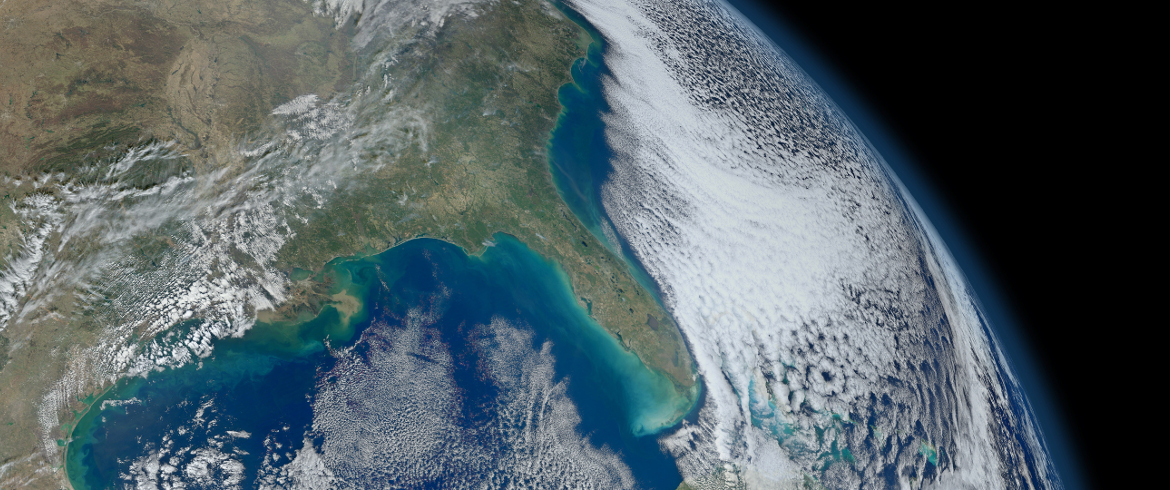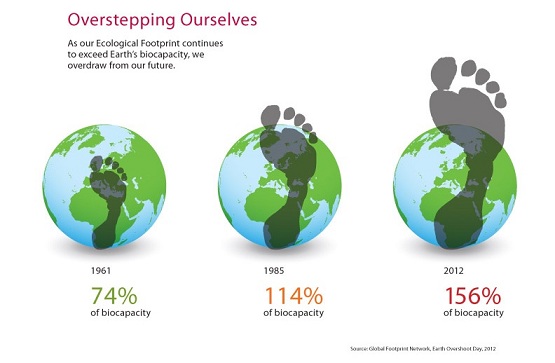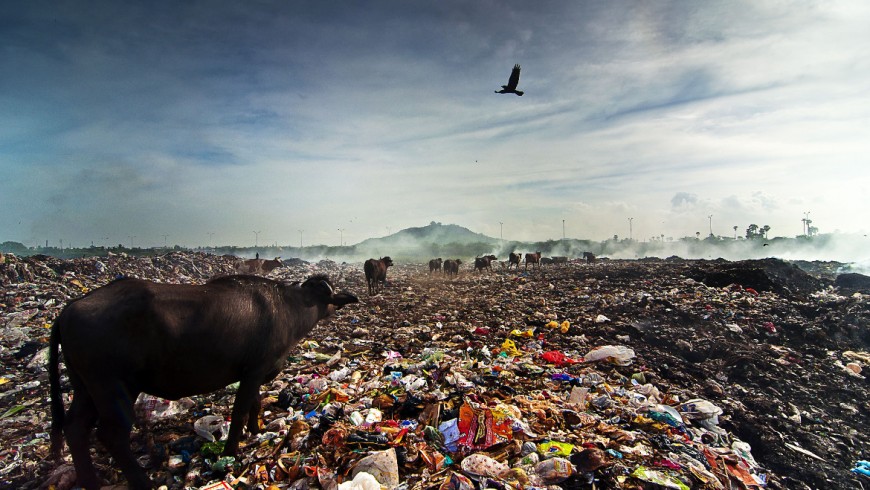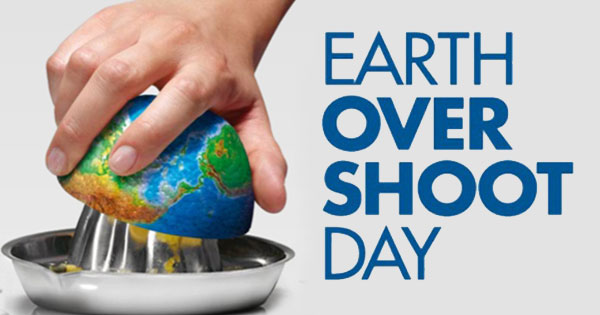It is well known that most of people’s daily actions have an influential power on environmental health of the planet, but do you know how to recognize the limit?
The Global Footprint Network, an international research center estimate each year the date on which humanity’s ecological footprint overtakes the regenerative capabilities of Earth, analyzing the production capacity of the planet and comparing the relative consumption of resources and pollution emissions.
This is the Earth Overshoot Day and in recent years it’s been more and more anticipated: indeed, if in 1993 this day was on October 21, and in 2003 was on September 21, this year it arrived on August 19. From that day we are consuming more than the planet can afford.
A Earth and a Half
So, in just 8 months we have exhausted the resources naturally produced from the planet. In fact it would take the capacity of regeneration of a planet and a half to meet energy needs and at the same time allow the Earth to absorb the pollutants we put into the atmosphere.
It ‘good to know that the consumption doesn’t only concern energetic sources but also those relating to food production, forests and all other raw materials we use and transform. How did we get to this point?
In the 60s humanity consumed only three-quarters of the resources produced by the Earth per year, but then the economic boom, the growth of population and industrialization has significantly increased the energy requirements and also produced more pollution. A combination that has gone progressively worse.
This is not only an environmental issue (reduction of biodiversity and climate change first), but also economic, since the scarcity of resources leads to increased costs, and civil issue, because some countries may be able to sustain themselves with their own reserves of biocapacity, while others (the majority) may not.
By analyzing the situation in individual countries, you can find out that in Italy we consume an amount of ecological resources up to 4 times the capacity of the land we live in, Switzerland up to 4 and a half times, while Qatar up to 6 times and Japan up to 7.
Check the footprint
The Global Footprint Network constantly performs researches on environmental sustainability, and over the years it has highlighted the need to include projects about the management of resources into any nation’s government plans and several countries are already collaborating with the center.
In addition to the large government programs, there are some ways in which we can control our personal footprint, just paying attention to small everyday choices or placing some good intentions, especially when we travel:
• In the city: if you live in a major urban center, it is best to prefer public transports that allow you to save on CO2 emissions, but other bright sides are the reduction of traffic, and that you will avoid the hassle to look for parking and related expenses. Who lives rather far from the city can still inquire about the savings possibility offered by services including bus, train and car sharing.
• On vacation: when you choose the location for your stay, pay attention to some details that show how much eco-friendly the structure is. For example it can be more or less supplied from renewable sources, propose a menu at 0 km, cleaning done without chemicals but with natural cleanser, and eventually organization of tours and visits to learn more about natural heritage of the place, and so on.
• Shopping: it seems to have little influence but in fact when you buy something you’re contributing to the exploitation of sources. For example, when you buy products out of season you’re funding a very expensive business as they’re imported or come from greenhouse crops that consume a lot more than vegetables or fruits that grow naturally. Let’s learn to rediscover and then follow the periodicity of natural food. The speech it can also be extended to clothing, gifts and anything else,: in this way youfund crafting and local economy, a very good thing in times like these.
• In nature: when you visit a place, natural or artificial, always remember to respect it and leave it as you found it. Do not dirty around because even a single piece of paper takes at least three months to be assimilated, a chewing gum up to five years, and a cigarette filter up to 10 years. A plastic bottle? Well, it would take 5000 years! Hence the importance of recycling, anytime, anywhere.
For those who wish to calculate the size of their ecological footprint, the Global Footprint Network has produced a simple test that will make you realize the importance of small daily decisions, to the following address:
Calculate your ecological footprint
Cover image: Planet Earth, ph. by BJ Hale via Flickr



